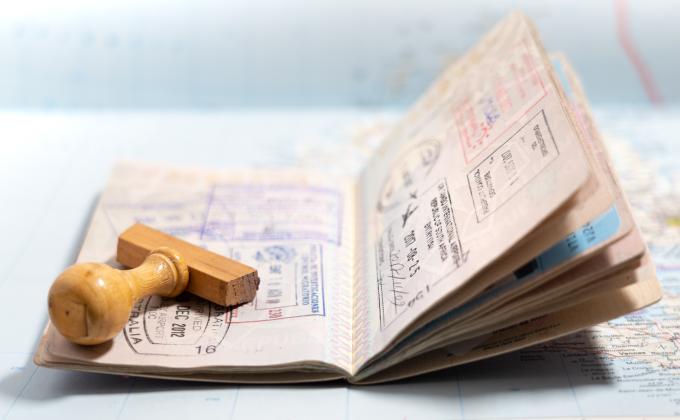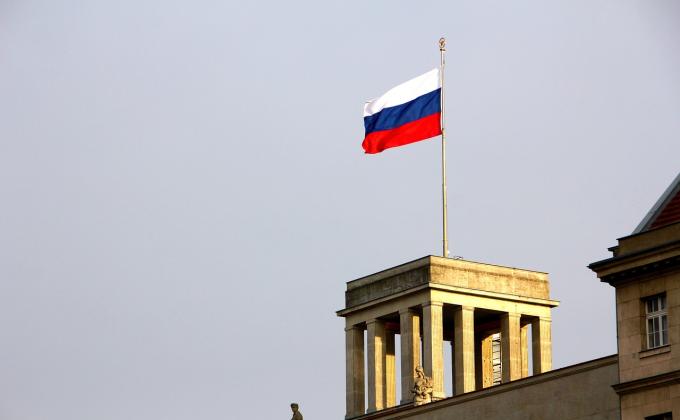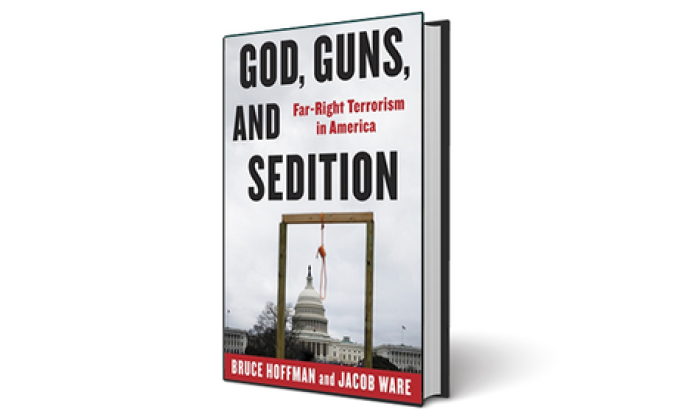On 31 December 2011, US President Obama signed the "National Defense Authorization Act for Fiscal Year 2012" (NDAA 2012). Coincidentally, the act comes almost ten years after the first terrorism suspects arrived at Guantánamo Bay, which still currently houses 46 suspects who have been designated for indefinite detention without charge or trial. The 565-page and 662-billion dollar defense bill has sparked controversy because of its counter-terrorism provisions. For instance, when it became clear on 14 December 2011 that the President would likely sign the legislation, Kenneth Roth, Executive Director of Human Rights Watch, warned that “[b]y signing this defense bill, President Obama will go down in history as the president who enshrined indefinite detention without trial in US law”. The point was repeated by Anthony D. Romero, Executive Director of the American Civil Liberties Union (ACLU), after the act was signed. Joanne Mariner, Director of Hunter College’s Human Rights Program, stated on 18 January 2012 that the NDAA 2012 was “a federal statute essentially meant to codify the Guantanamo approach to justice”. In fact, even Obama himself was critical of the act. When he signed it, he remarked that he had “serious reservations with certain provisions”. There are several counter-terrorism provisions of the NDAA 2012 that could be critically commented upon, but I will limit myself to reviewing Sections 1021 and 1022 – probably the act’s most controversial counter-terrorism provisions.
Section 1021 clarifies that the Armed Forces of the US can detain “covered persons” – this is explained infra – “pending disposition under the law of war”. This concept may include “[d]etention under the law of war without trial until the end of the hostilities authorized by the Authorization for Use of Military Force”. This "Authorization for Use of Military Force" (AUMF) was adopted on 18 September 2001, a week after the 9/11 attacks, and states that the US President is authorised to use all necessary and appropriate force against entities the President determines to be the (supporters of the) perpetrators of these attacks, “in order to prevent any future acts of international terrorism against the United States by such nations, organizations or persons”.
In a 2009 memorandum regarding its detention authority with respect to the Guantánamo Bay detainees, the US Department of Justice also argued that the AUMF’s principal purpose is to eliminate the threat posed by al Qaeda and the Taliban. Hence, it was asserted that the President did not only have the authority to detain persons who, basically, he determines to be the (supporters of the) perpetrators of the 9/11 attacks, but also persons “who were part of, or substantially supported, Taliban or al-Qaida forces or associated forces that are engaged in hostilities against the United States or its coalition partners, including any person who has committed a belligerent act, or has directly supported hostilities, in aid of such enemy armed forces”.
Returning to the NDAA 2012, it was explained supra that pursuant to Section 1021, covered persons can be detained without trial until the end of the hostilities authorised by the AUMF. Even though the NDAA 2012 does not explain the term “hostilities”, it could be likely that the Obama Administration seeks inspiration here from the 2009 memorandum. This document makes reference to “our current, novel type of armed conflict against armed groups such as al-Qaida and the Taliban” – language that fuels the fear that the US is involved in a more general armed conflict that does not seem to have any clear temporal (or geographical) limitations. Proof for this assertion could be found in the fact that the NDAA 2012 drafters may have considered the 2009 memorandum when defining a “covered person” under Section 1021 of the NDAA 2012. This concept is namely (almost) identical to the one quoted above in the context of the 2009 memorandum, i.e., not only a person with a link to the 9/11 attacks, but also “[a] person who was a part of or substantially supported al-Qaeda, the Taliban, or associated forces that are engaged in hostilities against the United States or its coalition partners, including any person who has committed a belligerent act or has directly supported such hostilities in aid of such enemy forces”. Hence, it could be argued that this piece of legislation entitles the US Government to subject a potentially broad range of persons to indefinite military detention without trial in the context of – taking the 2009 memorandum into account – an armed conflict with imprecise limits. This alone should raise alarm bells, but most of the act’s critics focused only on what this could mean for US citizens. For instance, Republican US Senator Rand Paul remarked that “[d]etaining citizens without a court trial is not American” and his fellow Senator, Democrat Dianne Feinstein noted that “[w]e are not a nation that locks up its citizens without charge, prosecution and conviction”. Concerning this, probably most controversial, point: Section 1021 spells out that “[n]othing in this section shall be construed to affect existing law or authorities relating to the detention of United States citizens, lawful resident aliens of the United States, or any other persons who are captured or arrested in the United States”. This could perhaps accommodate the fear of the NDAA 2012 critics, except that the “existing law or authorities” seem quite imprecise.
Furthermore, the provision clearly does not exclude US citizens. It only excludes US citizens (or lawful resident aliens of the US, or in fact anyone, denoted by the words “or any other persons”) captured or arrested in the US. Hence, Section 1021 would still allow for indefinite military detention without trial of US citizens, captured or arrested outside of the US. Supporters of the NDAA 2012 might also refer to Obama’s statement when he signed the act saying, “I want to clarify that my Administration will not authorize the indefinite military detention without trial of American citizens”. These words sound reassuring, although they are arguably of limited value. After all, they only indicate how this specific administration might deal with the law. However, that does not mean that future presidents may not interpret the law in a different way. Finally, one should not forget that Obama’s promise – in principle only valid as long as he is in power – does not include non-US citizens. It may indeed not be “American” to detain US citizens without a court trial, but perhaps it should be argued that it is un-American to lock up persons indefinitely without a trial, regardless of their citizenship.
Section 1022 explains that US Armed Forces shall hold a “covered person” who is captured in the course of hostilities authorised by the AUMF in military custody “pending disposition under the law of war”, unless the US President waives this requirement out of national security interests. Like Section 1021, this concept may include detention under the law of war without trial until the end of the hostilities authorised by the AUMF. As to the “covered person” definition of Section 1022, the mandatory military custody applies “to any person whose detention is authorized under section 1021 who is determined – (A) to be a member of, or part of, al-Qaeda or an associated force that acts in coordination with or pursuant to the direction of al-Qaeda; and (B) to have participated in the course of planning or carrying out an attack or attempted attack against the United States or its coalition partners”.
Section 1022, which stipulates that the requirement to detain a person in military custody under this section does not apply to, among others, US citizens, makes the war paradigm ((indefinite) military detention) – and not the law enforcement paradigm (arrest and prosecution) – the default for foreign al-Qaida (associated) terrorist suspects captured in the course of the potentially broad concept of “hostilities authorized by the AUMF”.
It should be noted that this section also contains a caveat, stating that “[n]othing in this section shall be construed to affect the existing criminal enforcement and national security authorities of the Federal Bureau of Investigation or any other domestic law enforcement agency with regard to a covered person, regardless whether such covered person is held in military custody”. However, FBI Director Robert Mueller has already expressed his concerns that the NDAA 2012 “could interfere with the FBI’s ability to investigate terrorist incidents and interrogate those believed responsible”. Obama, when signing the NDAA 2012, noted that Section 1022 was unnecessary and indeed had the potential to create uncertainty, but he again clarified that he “reject[s] any approach that would mandate military custody where law enforcement provides the best method of incapacitating a terrorist threat”. Again, the question is: how will other presidents after him interpret the law?
Regardless of how the Obama Administration will interpret and apply Sections 1021 and 1022 in the future, the fact is that these provisions have made it through Congress and are now anchored in legislation. This is a clear difference with the era of the Bush Administration, which preferred to act unilaterally. The enactment of the NDAA 2012 supports the view that the war paradigm is slowly but surely gaining ground on the law enforcement paradigm in the US fight against terrorism. However, it can be asserted that outside of clear battlefields, there cannot be any role for the military in this fight.
Besides this more principled argument against the NDAA 2012, whose questionable counter-terrorism approaches will hopefully not inspire other governments, the statute can also have very practical damaging side-effects. Not only with respect to the aforementioned negative impact the NDAA 2012 could have on FBI investigations, but also concerning investigations where the US needs the help of third countries. There is a real chance that more and more nations will be reluctant to cooperate – or in fact will be legally barred from cooperating – with the US, for instance when it comes to extraditing suspects who face military detention in the US. This could have negative consequences for an important goal of this statute, namely to effectively fight terrorism.
*Christophe Paulussen would like to thank his colleague Jessica Dorsey J.D., LL.M. from the T.M.C. Asser Instituut for her valuable help in drafting this commentary.
Addendum: After this commentary was written, the Obama Administration issued a policy directive on Section 1022 of the NDAA 2012. For more information on that directive, see this piece by Joanne Mariner.








